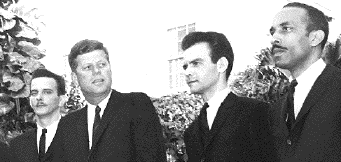 The military and national security establishment
The military and national security establishment of the United States is supposed to be under the control of our democratically elected civilian government. But is it?
An explosive new book by David Talbot,
Brothers: The Hidden History of the Kennedy Years, examines the hostility that existed between the Kennedy brothers and their own military, intelligence and enforcement agencies during the JFK administration in the early 1960s. The book also reveals that Robert Kennedy, who was Attorney General during his brother's presidency, believed that JFK was killed by an insider conspiracy of powerful players who didn't like some of the president's actions.
It underscores a troubling lesson we seem to never learn: that within all power structures, and certainly within Presidential Administrations, there are often struggles for domination, competing agendas, and subterfuge. Policies and military actions can veer in dangerous directions that have little to do with normal democratic processes.
The book is also a fascinating read, illuminating a contentious cast of characters including Jack and Bobby; CIA weirdos like James Jesus Angleton and
Howard Hunt; and military madmen like Curtis Lemay and Lyman Lemnitzer.
I interviewed David Talbot, founder and former Editor-In-Chief of Salon.com for The RU Sirius Show. He was also Senior Editor for
Mother Jones, and has written for
Rolling Stone and many other publications. He recently debated Vincent Bugliosi about the JFK assassination as part of a cover feature in
Time magazine.
Jamais Cascio and Jeff Diehl joined me in this interview.
To listen the full interview in MP3, click here.
RU SIRIUS: Your book shows that there was a terrible relationship between JFK and some members of his administration and the entire National Security establishment. It's all of a piece, but I think the situation with Joint Chiefs of Staff and the military really stands out...
DAVID TALBOT: They were his nemesis.
RU: They were very frightening.
DT: Yeah. The Kennedy administration was beleaguered and besieged by its own government. That was a revelation for me. After the Bay of Pigs fiasco, when Kennedy refuses to reinforce the CIA with U.S. troops and the Air Force, the government was pretty much at war with itself. Up to that point, they believed that Kennedy was a weak President – he was in over his head. And they were determined to run the country the way they wanted to.
RU: They suckered Kennedy into letting this invasion happen. Apparently, there was a fairly recent revelation that the CIA knew the Bay of Pigs wasn't going to work and they were sure that Kennedy would be forced to mount an invasion.
DT: That's right. I think they were trying to sandbag him. They knew he was young and inexperienced. According to the CIA's own internal history of the Bay of Pigs, which was released and de-classified in 2005, they knew that it would fail. They knew that their own motley brigade of Cuban exiles weren't sufficient to defeat Castro, and they thought that Kennedy's hand would be forced to send in the Marines and Air Force once these guys were pinned down on the beaches. But he didn't. He was very loath to widen the war. He knew — as the CIA itself later determined in an intelligence estimate — that if we were to do that, it would end up like what we're seeing today in Iraq. U.S. forces would have quickly swept aside Castro's military, they'd have marched on to Havana and then they would've gotten bogged down in a long and bloody occupation.
JAMAIS CASCIO: Did Kennedy suspect that he had been sandbagged?
DT: Yes. And he was furious. Afterwards, he famously threatened to shatter the CIA and scatter it to the winds. And he did fire the top two officials of the CIA — Allen Dulles, who ironically later became the most active member of the Warren Commission (to investigate the assassination of JFK), and Richard Bissell. And he was constantly re-shuffling his Joint Chiefs, because they were some frightening characters as well. The head of the Air Force, Curtis LeMay, actually thought you could fight and win a nuclear war.
RU: LeMay comes across in this book as actually very anxious to just get right into a nuclear war. And there's another character – Lyman Lemnitzer — true psycho maniacs. Talk a little bit about these characters.
DT: Those are two of my favorites! Curtis LeMay was this cigar-chomping World War II hero who had devastated Japan with firebombing assaults during that war. He knew that, in the early '60s, America had massive nuclear superiority over the Soviet Union. And he thought that was our window of opportunity to take the commies out. Do it now. We would, of course, suffer millions of casualties of our own, but he argued with Secretary of Defense Robert McNamara that you could still win the war as long as you had more weapons in the end.
RU: The one who dies with the most bombs wins.
DT: Exactly. LeMay, of course, was the inspiration for General Jack Ripper in
Dr. Strangelove.
RU: And he was George Wallace's Vice Presidential candidate in 1968.
DT: Lyman Lemnitzer is another frightening character. Kennedy thought he was a dope — that's what Arthur Schlesinger, the Kennedy historian, told me. This is the Chairman of the Joint Chiefs of Staff.
RU: Right. A complete idiot.
DT: Yeah, a complete idiot. And at one point, he came up with a scheme called Operation Northwoods, which he presents to McNamara and Kennedy.
JEFF DIEHL: The 9/11 conspiracy people bring that up all the time.
DT: Yes, because it obviously has some potentially interesting parallels with what happened on 9/11, depending on what you think 9/11 was all about. In any case, this was a plan to provoke a number of terrorist acts on U.S. soil and blame it on Castro as a way of creating a pretext for a war on Cuba. The plan included setting off bombs in Miami and Washington and killing American citizens and blaming it on Fidel.
RU: In
Body of Secrets: Anatomy of the Ultra-Secret National Security Agency, James Bamford reported that one of the ideas was to blow up John Glenn in space, and blame it on the Cubans.
DT: (Laughs) Yes.
RU: You asked McNamara about it, and McNamara didn't even remember it. I get the sense that the Kennedy administration didn't even take it seriously. They just kind of tossed it in the wastebasket.
DT: I found a memo that Lyman and Lemnitzer did bring it up in the meeting with Kennedy, and he dismissed it out of hand. And Kennedy said, "I hope you're prepared for a wider war." In other words, he thought the Soviets would move against West Berlin if we were to move on Cuba.
I think Jack Kennedy was a wise and temperate man who'd learned the horrors of war firsthand as a young Navy officer in World War II. His own brother, who was a Navy pilot in World War II, had been shot down and killed during that war. So he wasn't like the kind of rich kids we see in office today in the White House…
RU: Although he was a rich kid.
DT: That's right. He was a rich kid. But he actually served in the military, and he knew firsthand the horrors of war.
RU: I love this expression that you use to describe how Kennedy operated. "In the end, JFK threaded the needle of Berlin, as he would do repeatedly during his administration, avoiding either an explosive confrontation or embarrassing capitulation in an artful dance, combining tough speech, symbolic military measures, and back channel diplomacy." Threading the needle – he was trying to sneak down the middle.
DT: Right. He was a skillful guy at the game of politics. He knew that if he came out too publicly as a force for peace, he would be pilloried by the far right, which was on the rise in those days – and was strong in the military — and he would be portrayed as a wimp. And, of course, Democrats have been portrayed that way ever since. But Kennedy was artful about avoiding that label. At the same time, behind the scenes, he was clearly trying to thread the needle and get out of these war situations — in Berlin, in Vietnam, in Laos, and in Cuba.
RU: How would you compare the pressures that he had from the right wing
military establishment and the CIA — and a public that was prone toward being swayed by labeling someone a wimp — and the situation today. Because in reading the book, it makes me think things were
much crazier then than they are now.
DT: Well, the stakes were certainly higher. The world was on the brink of nuclear holocaust throughout the Kennedy years. And there was a very active right wing in this country agitating for war. Within the military, there was a figure named General Edwin Walker. He was actually a very revered figure in the army. He was stationed in West Germany where he distributed far right John Bircher propaganda to his active duty soldiers and advised them how to vote. Of course, he was telling them to vote against the Democrats. Kennedy finally forced him out of the service and he became very active campaigning against Kennedy policies. He even went down to Ole Miss, the University of Mississippi, at the height of some serious disturbances there. A black student, James Meredith, was the first to enroll at the University and it set off white riots. Walker was stirring up those riots.
RU: Talking about how crazy things were then, the Ole Miss story is perhaps one of the most intense moments in your book. We would totally freak out if something like that happened now.
DT: Absolutely. And if a movie were ever made of my book, this would be one of the most intense scenes in it.
RU: Cinematic.
DT: Cinematic. You know, the Kennedys get blamed for being slow to move on Civil Rights. But certainly by 1962, his second year in office, JFK and his Attorney General Bobby Kennedy were moving pretty aggressively on Civil Rights. And when James Meredith, a former Air Force sergeant, becomes the first black student to enroll at this all-white, racist university — the University of Mississippi – all hell broke loose in the South. The governor, Ross Barnett, was riling people up down there and the local Klan was mobilized. And this former military officer, Edwin Walker attempted to rally the entire South to take its final stand on the campus to prevent desegregation. It was called the last battle of the Civil War.
RU: It was almost like civil war.
DT: Yeah, thousands of people from all over the South descended on the university. Some of them had squirrel guns; some had homemade bombs, bricks — anything they could throw at the beleaguered federal marshals who were protecting James Meredith. A thin line of federal officers had been quickly mobilized to protect Meredith, as well as prison guards. They even used drug enforcement people. They had all been sort of mobilized at the last minute under Nicholas Katzenbach, who was an aide to Bobby Kennedy.
So they were outside the administration building all night long as the riot got more and more out of control. They were down to their last tear gas canisters, which is all they have to try to disperse these rioters who were armed to the teeth. Two people were shot and killed and many wounded. Many of the federal marshals were wounded and bleeding. It was a scene of complete bloody chaos.
The military was supposed to reinforce these marshals and drive away the rioters, but they were very slow to move. And there are tapes of conversations inside the White House that night between President Kennedy and Bobby Kennedy, and their aides Ted Sorensen and Kenny O'Donnell. There was an increasing level of hysteria within the White House as they realize that the federal marshals are about to be overwhelmed and Meredith could be lynched by this mob. And they were on the phone to the army, constantly...
RU: One of Kennedy's friends was right there in the thick of it.
DT: The deputy aide, Nicholas Katzenbach, was right there. He was a World War II veteran, but he too was beginning to sound increasingly desperate … "Where is the military?" And Bobby Kennedy was yelling at the military, "Where are you?"
In retrospect, it looks like it was probably just a badly run operation, and they weren't prepared to move as quickly as they had to that night. But the feeling within the Kennedy group that night was that it was treasonous. And they talk about the book,
Seven Days in May, which was a best seller at the time. It was written by Fletcher Knebel, who was a friend of Kennedy's, about an attempted military coup in Washington. And the Kennedy's were asking themselves, "Is this happening in the United States?"
RU: Kennedy wanted to get that film made.
DT: He wanted that film made — I think — not only as a shot across the bow to the generals but also as a warning to the American people. You know, you think the President's in command of the military at all times, but the Kennedys' felt – that night at least — that the control was slipping out of their hands.
RU: And this seems to be the story of the book. During the '60s and '70s, within underground culture, a lot of people liked to say that the Kennedy assassination was essentially a coup d'etat. This doesn't seem far from the story you tell in your book. Would you embrace that language?
DT: Well, you know, the assassination of JFK is a dark labyrinth. It's possibly the darkest labyrinth in my lifetime, the biggest mystery. Many books have been written about it and I didn't want to go down that same tunnel. But I wanted to follow Bobby's footsteps, because Bobby Kennedy was the Attorney General of the United States and one of the most aggressive investigators in American public life in his day. And he was utterly devoted to his older brother, President Kennedy. So I wanted to know what he really thought.
I thought doing that would shed light on this case. And the truth is, starting from the afternoon of that terrible day in Dallas; Bobby Kennedy believed that his brother's assassination was a conspiracy. He looked immediately at the CIA and its secret war on Castro as the source of the plot.
RU: His public posture was to embrace the Warren Report, but in the meantime he organized his own explorations.
DT: That's right. I believe he rather tepidly endorsed the Warren Report in public because he knew his own power to investigate the crime was quickly fading, as soon as his brother was killed. The new President, Lyndon Johnson, hated his guts. The head of the investigation into the assassination, J. Edgar Hoover, head of the FBI, was also a poisonous enemy of Bobby Kennedy's. So Bobby knew his own power as Attorney General was quickly evaporating. He was determined to get back to the White House as President to re-open the investigation.
RU: Assuming that this assassination was an inside job, and that it was on behalf of the people who wanted to go to war with Cuba — why didn't something happen after Kennedy was gone and then Johnson was in office?
DT: Well, they got their war, but not on Cuba. They got their war in Vietnam. I understand that JFK was determined to withdraw entirely from Vietnam after he was successfully re-elected in '64. He knew he would be facing a strong challenge from Barry Goldwater, and he wasn't about to give Goldwater a weapon by withdrawing from Vietnam before the campaign. But he told his Secretary of Defense Robert McNamara — who I interviewed — and Kenny O'Donnell, and other key aides that he fully intended to withdraw. And, of course, he only had 16,000 troops there at that point. Not the half million that LBJ and Nixon later had. He knew that it was up to the South Vietnamese people to win that war, and the Americans couldn't win it for them. Just like Iraq today.
This is what McNamara told me, and I think it's true. McNamara has no reason to lie about it. In fact, he has every reason to say the opposite because, of course, he was responsible, along with Johnson, for the tragic escalation of that war. He could've pinned it on JFK, but he didn't.
So I believe the military-industrial complex — these forces that work in America, did get their war finally. Kennedy constantly frustrated them, but they got their war. It was in Vietnam.
RU: Some of the theories around the JFK assassination tend to be
bizarre. Oliver Stone's movie is maybe a little bit out there. And the New Orleans District Attorney Jim Garrison became sort of the focal point for theories. What do you think about Garrison, and what did Bobby Kennedy think about Garrison?
DT: Well, I actually think there's a certain heroism to both Garrison and Oliver Stone for standing up — particularly Garrison, who tried to re-open the case. I think he was in over his head. He made some wrong decisions. Ultimately, he set back the cause of the investigation when he lost his case. So I think of them both as flawed heroes. I think many of the things that Stone was looking at in
JFK were close to the truth, and close to what Bobby Kennedy suspected. So Oliver Stone wasn't completely off the wall. But he's not a historian or a journalist, and it wasn't a documentary, so he used dramatic license. But he certainly succeeded in re-opening this debate. As a journalist, in 1991, I became interested in all this because of that film. As did many Americans. So he provided a service when the American media and the government had completely failed to get at the truth. It took a filmmaker to re-open the debate.
RU: A shitload of books have come out since that have claimed to prove that it was, in fact, Lee Harvey Oswald and he was a lone gunman. The
most recent one by Vincent Bugliosi came out virtually at the same time as yours.
Bugliosi's book is massive. Have you read it?
DT: 1600 pages! No, I couldn't face all 1600 pages. But I have dipped into it. I read sections that pertained to my book. He's a lawyer so he can essentially prove anything, and that's what he's done. He's attempted to pin it on Oswald. There are many flaws in the book. In terms of his material about Bobby Kennedy, for instance, he's all wrong. He thinks Bobby Kennedy accepted the Warren report, both privately and publicly. And that's just not the case.
I think there's such enduring fascination with this because it's still the biggest mystery in American political history. Americans know, in their hearts, that something very dark happened in Dallas, and they haven't been given the full truth. Polls consistently show that upwards of 75-80% of the American people don't believe the Warren report.
But people say, "Oh, we'll never know the truth. There are so many theories out there." But in truth, we know more than we think. And a respectable body of opinion by the best researchers has really coalesced around one theory of this crime, and it happens to be what Bobby Kennedy thought. He believed that the plot against JFK grew out of the CIA's shadowy operation against Fidel Castro. It was an operation that brought together the CIA, the Mafia and militant Cuban exiles. And that, I believe, is where the conspiracy came from.
The House Select Committee on Assassinations, which I think is the best governmental investigation into Dallas, also came to similar conclusions in the late 1970s. Anthony Summer, a very good Irish investigative journalist who worked for the BBC came to similar conclusions in his book,
The Kennedy Conspiracy. Jeff Morley of the
Washington Post, who I think is the best working journalist on this beat in America, is also looking in the same direction.
RU: We're talking about the Mafia, the CIA, and Cuban exiles. But are there some specific individuals that you feel were very likely to have been involved in this?
DT: Well, one of them, of course, is
Howard Hunt. He was the head of the Watergate burglary team and a former CIA agent who was very much a part of the war on Castro. And in January of this year, as he was dying, he made a series of confessions to his son, St. John. And he said that he was invited to a CIA safehouse meeting in 1963 in Miami where the plot to kill President Kennedy was discussed. He named William Harvey and David Morales as other likely suspects. In fact, he says that David Morales, who was another well-known CIA figure, was at that meeting. And he names David Phillips. Those are key CIA names.
RU: What comes across in your book is that Bobby Kennedy, like his brother, played a delicate game in behaving militantly towards Cuba, and even taking small actions, short of invasion and bombing — tepid stuff that really wouldn't do anything.
DT: That's right. And Bobby Kennedy was militantly anti-communist. He was no fan of Fidel Castro. But he was outraged after the fiasco at the Bay of Pigs. He knew this was a humiliation for his brother and he took it personally. He was that kind of guy.
Someone described him to me as being like an Irish cop — he was a young man and he tended to see things in black and white. He was a work in progress at that point. He was 35 when he became Attorney General. But I think he grew quickly while he was in office. And my evidence suggests that by 1962, the Kennedys were doing a two-track strategy with Castro. As you say, they were operating something called Operation Mongoose – a series of pinprick actions directed against Fidel Castro meant to de-stabilize his government. These were not assassination plots. And it looks like they were doing it for political reasons back home because they were under intense pressure from the far right to do something about Castro. It was more or less for show. Meanwhile, in the final
months of the administration, JFK opened up a secret peace channel to Castro through an assistant to our U.N. ambassador named William Attwood and an ABC newswoman named Lisa Howard. She also happened to be sleeping with Fidel.
RU: And she was bugged by the CIA.
DT: That's right.
RU: I can sort of understand the right wing's level of paranoia. Here you have John Kennedy going through back channels to Cuba with a woman who's sleeping with Castro. And Bobby Kennedy, at some point, seems to become friends with somebody in the Khrushchev government. He sort of gripes about the right-wingers he has to deal with to this guy. And I can imagine how some rightwinger listening in might think, "What? That's treason!"
DT: Consorting with the enemy. Exactly. I think you could understand the hard-liner's point of view. They believed the Kennedys were young; they were in over their heads, and they were kind of out of control. In fact, they're wiretapping a former CIA wife named Mary Meyer, and they found out that, after her divorce from her husband, Cord Meyer, she was sleeping with President Kennedy. And she was trying to turn him on to LSD.
RU: Half my audience is having an orgasm right now, because they've been waiting for us to bring up the Mary Meyer thing. And
my old friend Tim Leary does have a brief cameo role in your book.
DT: Absolutely.
RU: Tell a little bit about that.
DT: Well, Mary Meyer met JFK when they were both in prep school. She started off very much a blueblood from the very prominent Pinchot family. Then she married this CIA official, Cord Meyer. And she divorced him as he became more and more right wing. She was going in the opposite direction, politically. By the early 60s, Mary Meyer was kind of a pre-hippie hippie. She was an artist and a painter living in Georgetown. And she had divorced her husband and she was having an affair with the President. And I think it was quite a serious relationship — it wasn't one of these fiddle-and-faddle kind of flings that Kennedy would have.
He was really deeply into Mary Meyer (in more ways than one). And in this idyllic period in the early '60s, she was taken with the idea that peace, love and drugs could change the world. Specifically, she was out to turn on the world's leaders to the idea that they don't have to be in a constant state of war. So she went to Harvard, where Timothy Leary, of course, was still a respected professor in those days.
RU: Semi-respected.
DT: (Laughs) And she asked his help. She was setting up these acid experiments involving some of the more prominent men in Washington. She was doing this through their mistresses and wives. Apparently, she has some of these sessions, and she thought they were succeeding quite well. But one day she came back to Leary in a panic and told him things had gone terribly awry. One of the women had sort of gone public and exposed what was happening. And Mary was very alarmed about what the consequences would be and even asked if she could hide out at Leary's...
RU: ...at
Millbrook. Not a great place to hide out. A big estate, but probably spied upon just as much as the White House!
DT: Leary lost touch with her a while and JFK was assassinated. About a year after the assassination, he looked up Mary Meyer and found out to his horror that she had also died a violent death while walking on a towpath along a canal in Washington. In broad daylight, a man came up to her and killed her, execution style — shot her through the head and the heart. She wasn't sexually violated and nothing was stolen. It was just an execution-style murder that was never solved.
RU: Apparently at some point, James Jesus Angleton mentioned Mary Meyer in the context of LSD.
DT: That's right. He played a strange role in this. Angleton is one of the more spectral and spooky figures in the CIA history
RU: Just an incredibly weird guy.
DT: Very odd man — head of CIA counter-intelligence. He spent his whole life doing these mind games in which he was trying to prevent the Soviet Union from penetrating American intelligence. And some people believe that he ruined the CIA through his paranoia.
In any case, he was obsessed with Mary Meyer. Ben Bradlee, the former editor of the
Washington Post, knew both of them because he was Mary Meyer's brother-in-law. He thought Angleton was romantically and sexually obsessed with Mary Meyer. He wiretapped her. And I believe that he knew about the affair between Mary Meyer and Kennedy. So potentially, the CIA knew that Kennedy was doing drugs. One more nail, I think, in JFK's coffin. They believed this young President was out of control.
After Meyer was killed, Angleton showed up at her home, and then at her studio, trying to pick the lock... which he was good at. Ben Bradlee and his wife found him there. Apparently he was looking for her diary. And the diary's a source of much speculation. Eventually the diary was found. And for some reason, Mary's sister (Bradlee's wife) gave it to Angleton to destroy. He didn't do it, and she later asked for it back. She claimed that she disposed of it. In this diary, of course, are entries about her affair with JFK and who knows what else.
RU: We presumably have an elected representative who is Commander-In-Chief of the military and is in control of these other organizations. But we know that both Carter and Clinton had a hard time with the National Security establishments. I guess any time anybody to the left of Attila the Hun gets into power, the question becomes whether they're really in control of the military or whether the military is in control of them.
DT: I think so. Clinton, of course, set them off right away with his policies on gays in the military. And that provoked a sharp reaction.
RU: He couldn't salute properly.
DT: He couldn't salute properly. He hadn't served himself — he wasn't one of them. And I think that any progressive president that takes office now will face a similar kind of response from hardline elements in the government that JFK was forced to confront. That's why these historical lessons are very important for us to understand. It's important to see what any progressive in the White House is going to be up against.
There will always be elements of this military-industrial complex that will be pushing war for power and profit. There will always be that impulse. It takes a formidable leader to stand up to those pressures.
JD: Today, with Iraq, weren't some people in the military advising not to invade?
DT: That's the irony. The real nut cases are in the White House today, and not so much the Pentagon or CIA. The CIA and the Pentagon have been forces for restraint under the crazy Bush-Cheney administration.
JD: Does that bode better, then, for a progressive White House?
RU: I think they might be happy to get a centrist back into the White House.
DT: Maybe, but there are always these lobbies. You know, Rumsfeld and Cheney came out of that kind of thing. They were working for military contractors and lobbying organizations that were always pushing for the next war. We're already hearing about Iran. Bomb bomb bomb bomb bomb Iran, as McCain joked. Not really a funny joke.
RU: Steve Wozniak thought it was funny.
DT: Strange sense of humor, that Steve. In any case, I think whoever's in the White House is going to be facing those pressures. And sometimes you have someone in the White House who's part of that kind of crazy war lobby, like the current administration.
JC: In American culture, we now have a sensitivity to conspiracy. While there were certainly conspiracies and scandals in the era before Kennedy, there wasn't the expectation that the government was going to be corrupt in such a violent way. Today, we're maybe overly conscious of the potential for conspiracy. A perfect example is the willingness of so many people to believe in the most massively bizarre
conspiracies around 9/11. So it seems to me that it's much trickier for these conspiracies to be carried off successfully.
DT: I think that's true and it's not true. But I agree with your point that the public is more conspiratorially inclined today than when I was growing up as a kid, before Dallas. On the other hand, the gatekeepers — the opinion elite in this country. The media...
RU: They've had a backlash.
DT: Very much so. They're very suspicious of any conspiracy theories. The reaction to my book in the media world is very interesting.
RU: Are you
a wingnut?
DT: It's been very mixed. I was severely chastised in the
Boston Globe and the
Washington Post for being too conspiracy minded. But that's why I didn't really frame this book as a conspiracy book. And I rooted it in historical fact, and documented it all very carefully. I interviewed over 150 former Kennedy administration officials, friends and colleagues. I went through thousands of documents that are available now. And it's very clear from those documents that the Kennedy administration was at war with itself. And it's clear that Bobby Kennedy suspected a plot. That's historical fact. That's not my speculation. That's the truth.
RU: Have people talked about Bobby Kennedy's suspicions in the past – or is this a breakout news item?
DT: It's the headline from my book. I mean, there have been rumors about it, and little bits about it in a couple of other books like
Robert Kennedy and His Times by Schlesinger. But no one has really delved deeply into it.
I believe that these questions about conspiracy are important in a larger sense. The American public's imagination has become so inflamed because they know — on some gut level — that they're being lied to by one administration after another — and particularly by this administration. And they lied about something as important as war — the run-up to the war in Iraq. I think the American people are so fed up with this — they're so skeptical now that, in a way — it's even more difficult for researchers like me to break through and to say, "Look, not everything's a conspiracy, but some things are." American power works like power does around the world. Sometimes we like to think we're exceptional. Dark things happen in Latin American countries. Dark things happen in European countries. But for some reason, some Americans have a certain naiveté – particularly the media. We like to think we're above that kind of thing. But America is capable of dark things. We should know that by now. We have to sort that out. As researchers, journalists and historians, it's our job to sort fact from fiction. Everything isn't a conspiracy — I'm very skeptical of a lot of the 9/11 stuff that I've seen. But on the other hand, I think that what happened in Dallas was clearly very dark and sinister, and we haven't been told the full truth about it.
RU: As you said, these things
do happen, and in some ways, none of this is terribly shocking. And I thought about this as I was reading about Bobby Kennedy's struggles with the Mafia. And there was this interesting contrast in the personalities of the Kennedy brothers — JFK was more of a hedonist and Bobby was a very strict moralist. And Bobby got into this thing with the Mafia while John was still hanging out with Frank Sinatra. Reading this, at some point I almost start to identify with the Mafia guys...
DT: After Bobby's been at them for a while, you have to sympathize with them.
RU: Well, you know, these guys are saying
(New York Italian accent) "'ey! I thought we had a deal here!" You know? They did. They thought they had a deal.
DT: Exactly. They had a deal with the old man, Joe Kennedy. I think that was actually the source of Bobby's energy and fervor on the subject. It was a great Oedipal drama. Joe Kennedy, the great family patriarch, built the fortune any way he could. He was a pirate. He built it through Wall Street speculation; through shady Hollywood deals and building a movie empire; and through bootlegging. The bootlegging business and the Hollywood business brought him into contact with the mob, as partners. I believe he brought the mob into the campaign in 1960 when JFK ran for President in 1960 and they helped push JFK over the top, The Kennedys weren't alone in this, of course. That's the way the game was played. Nixon had his own mob contacts and his own vote theft. But Bobby was a devout Catholic and he was aware of this. He loved his father deeply, but I believe he was also ashamed of much of his father's past.
RU: Was there conflict between John and Bobby because they had such different personalities?
DT: I think JFK was bemused by how ardent his younger brother was. As you say, Jack was more like a prince. He was a debonair, sophisticated guy who had no problems hanging out with some shady characters himself, like Frank Sinatra.
Bobby Kennedy was a different animal. But JFK also loved his brother's devotion and his energy and commitment, and respected him enormously. And he kept giving Bobby more and more responsibility in that government. They didn't trust the CIA, the Pentagon, and much of their own administration, like the Secretary of State, Dean Rusk. So their government really became a family affair. He kept giving more and more of the tasks of government to his Attorney General — his brother.
JC: Was the assassination of Bobby Kennedy part of this, or was it just a lone nut.
DT: I didn't focus on that much in my book. But I do raise questions about it. I interviewed a number of people who were there that night in Los Angeles when Bobby Kennedy was gunned down at the Ambassador hotel after winning the California primary. One of them was Frank Burns. He was an aide to Jesse Unruh, speaker of the California Assembly, and a Democratic Party lawyer. He was one of the guys wrestling with the convicted assassin, Sirhan Sirhan, for the gun. He said Sirhan was standing four to five feet in front of Bobby as he's walking through the hotel pantry, but the fatal shot was delivered at point-blank range behind Bobby's ear, right into his skull. Thomas Naguchi, the coroner of Los Angeles County, also said there was no way Sirhan could have fired that fatal shot, given where he was standing. Obviously Sirhan was playing some role that night. He had a gun. He fired at Bobby. But I don't think the fatal bullet came from Sirhan's gun.
RU: Most of the book is not about the assassination. It's about the Kennedy administration. You're basically rehabilitating their progressive reputation and their intentions regarding war and peace.
DT: Yes!
RU: Is there a final take-home lesson for us?
DT: JFK wanted his epitaph to be, "He kept the peace." And he delivered a beautiful speech along these lines at American University in 1963, saying "We all live on the same small planet. We all breathe the same air. We all cherish our children's future. And we're all mortal."
He was saying that about America and our enemies — the Soviet Union. I think we need to have this kind of visionary leadership again to make this world a safer, more peaceful place.
See also:
The Chicks Who Tried To Shoot Gerald Ford
Detention and Torture: Are We Still Free or Not?
Anarchy for the USA: A Conversation With Josh Wolf
Homeland Security Follies
The LA Cop Who Became the Leading 9/11 Conspiracy Spokesman
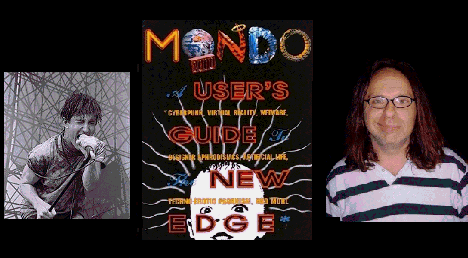
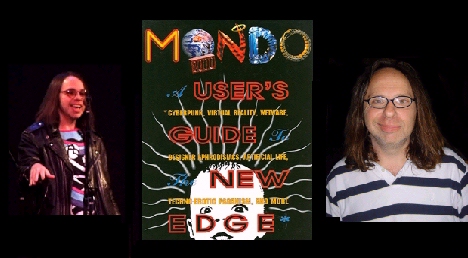
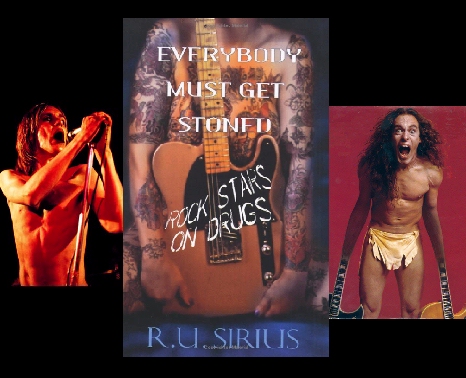


 In 1969-1970, Iggy Pop and his seminal proto-punk band the Stooges lived together outside Detroit in a house they nicknamed "Fun House." (They also
In 1969-1970, Iggy Pop and his seminal proto-punk band the Stooges lived together outside Detroit in a house they nicknamed "Fun House." (They also  Dee Dee Ramone found himself at a party in London, hanging out for a few moments in the bathroom snorting great quantities of speed. It wasn't the sort of place you'd want to hang out for too long, as Dee Dee quickly noticed that the bathroom was disgusting — sinks, toilets, everything was full of vomit, piss, and shit. Sid Vicious — a key figure in the London punk scene but not yet a member of the Sex Pistols — wandered in and asked Dee Dee if he had anything to get high on, so Dee Dee generously gave Sid some of his crank. Vicious pulled out a syringe, stuck it into a toilet filled with puke and piss, and then loaded it with speed and shot himself up.
Dee Dee Ramone found himself at a party in London, hanging out for a few moments in the bathroom snorting great quantities of speed. It wasn't the sort of place you'd want to hang out for too long, as Dee Dee quickly noticed that the bathroom was disgusting — sinks, toilets, everything was full of vomit, piss, and shit. Sid Vicious — a key figure in the London punk scene but not yet a member of the Sex Pistols — wandered in and asked Dee Dee if he had anything to get high on, so Dee Dee generously gave Sid some of his crank. Vicious pulled out a syringe, stuck it into a toilet filled with puke and piss, and then loaded it with speed and shot himself up.
 The right-wing rocker Ted Nugent is known for being very antidrug and very prowar. The Motor City Madman happily calls out any pussy-ass traitor not ready to grab a gun or a bomb or a nuke and show those towelheads that we mean business. But back during the glory years of the Vietnam war, this most macho chickenhawk in the Republican firmament went to extremes to make sure his own pussy ass didn't end up in Vietnam, and he used drugs to do it.
The right-wing rocker Ted Nugent is known for being very antidrug and very prowar. The Motor City Madman happily calls out any pussy-ass traitor not ready to grab a gun or a bomb or a nuke and show those towelheads that we mean business. But back during the glory years of the Vietnam war, this most macho chickenhawk in the Republican firmament went to extremes to make sure his own pussy ass didn't end up in Vietnam, and he used drugs to do it.

 Japan has a reputation for searching rock stars for drugs. Most famously, Paul McCartney spent some time in jail after going through Japanese customers (see also the chapters: "The Beatles on Drugs" and "Big Busts and Big Deals"). So when Guns n' Roses guitarist Izzy Stradlin was warned by his manager to get rid of any drugs he might have before going through customers in Japan, Stradlin put them someplace he knew he wouldn't lose them — in his stomach. He must have had quite a stash, because he wound up in a coma for 96 hours.
Japan has a reputation for searching rock stars for drugs. Most famously, Paul McCartney spent some time in jail after going through Japanese customers (see also the chapters: "The Beatles on Drugs" and "Big Busts and Big Deals"). So when Guns n' Roses guitarist Izzy Stradlin was warned by his manager to get rid of any drugs he might have before going through customers in Japan, Stradlin put them someplace he knew he wouldn't lose them — in his stomach. He must have had quite a stash, because he wound up in a coma for 96 hours.
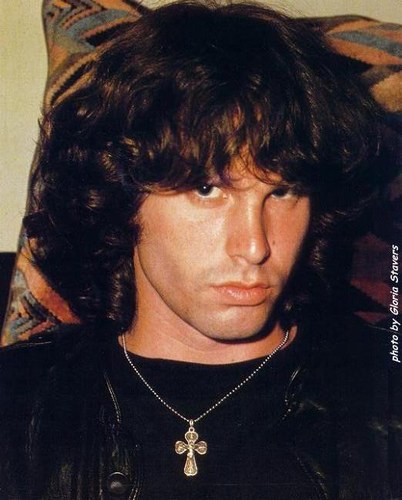 In
In  In his mid-1970s heyday, Los Angeles declared "Elton John Week." To celebrate, the glam rock pasha invited his relatives out to L.A. to celebrate. Allegedly, Elton took 60 Valiums, jumped into a hotel pool, and shouted, "I'm going to die." His grandmother was heard to comment: "I suppose we're going to have to go home now."
In his mid-1970s heyday, Los Angeles declared "Elton John Week." To celebrate, the glam rock pasha invited his relatives out to L.A. to celebrate. Allegedly, Elton took 60 Valiums, jumped into a hotel pool, and shouted, "I'm going to die." His grandmother was heard to comment: "I suppose we're going to have to go home now."
 In a 1999 High Times interview, Ozzy talked about the time he had the best coke he'd ever had. He said, "I'm lying by the pool one day and I met this guy and I ask him, 'You want to do some coke?' He goes, 'no no no.' I'm whacking this stuff up my nose, it's a brilliant sunny day, and this guy's sitting there with one of those reflectors under his chin getting a suntan. I say, 'What do you do.' He says, 'I work for the government.' 'Uh... what do you do with the government?' 'I work for the drug squad.' I sez, 'You're fucking joking.' He shows me his badge. I fuckin' flipped...flames were coming out of my fingers, man. He says, 'Oh you're all right. I'm the guy that got you the coke.'"
In a 1999 High Times interview, Ozzy talked about the time he had the best coke he'd ever had. He said, "I'm lying by the pool one day and I met this guy and I ask him, 'You want to do some coke?' He goes, 'no no no.' I'm whacking this stuff up my nose, it's a brilliant sunny day, and this guy's sitting there with one of those reflectors under his chin getting a suntan. I say, 'What do you do.' He says, 'I work for the government.' 'Uh... what do you do with the government?' 'I work for the drug squad.' I sez, 'You're fucking joking.' He shows me his badge. I fuckin' flipped...flames were coming out of my fingers, man. He says, 'Oh you're all right. I'm the guy that got you the coke.'"
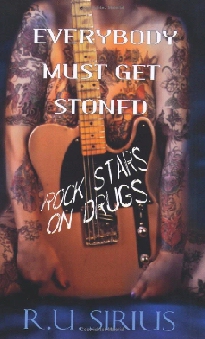



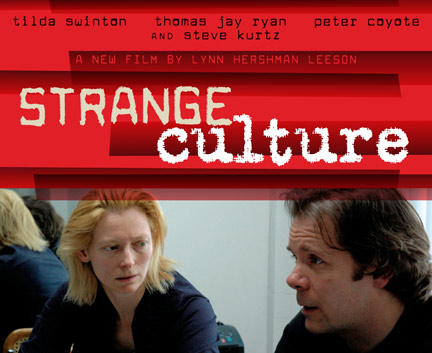




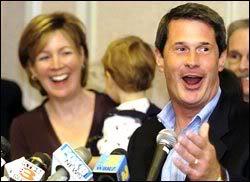 10 Zen Monkeys received the following document from a friend who works as an aide to Republican Louisiana Senator David Vitter. It is the handwritten draft of the statement Senator Vitter planned to give before the press conference about his involvement in
10 Zen Monkeys received the following document from a friend who works as an aide to Republican Louisiana Senator David Vitter. It is the handwritten draft of the statement Senator Vitter planned to give before the press conference about his involvement in 
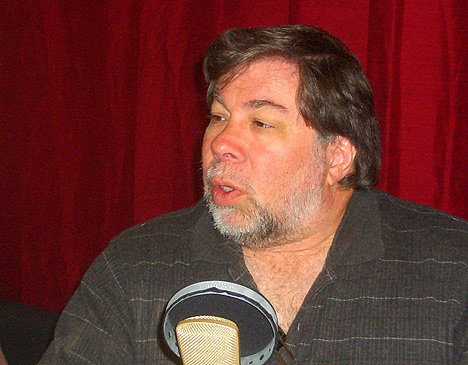
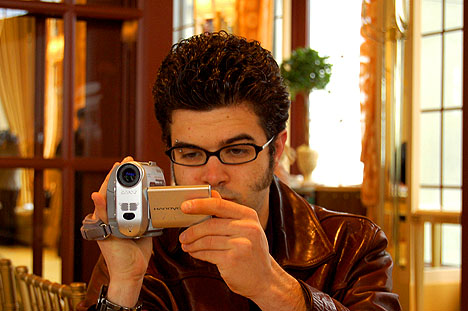




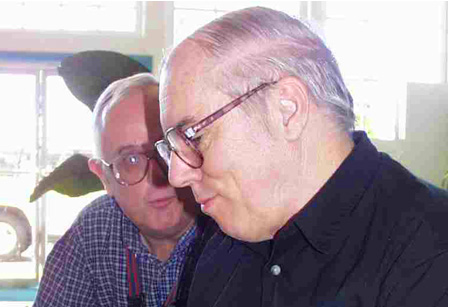
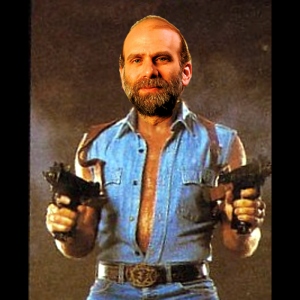
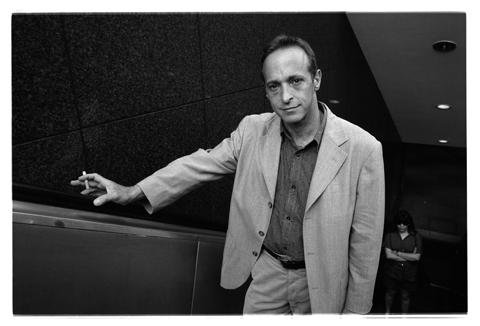




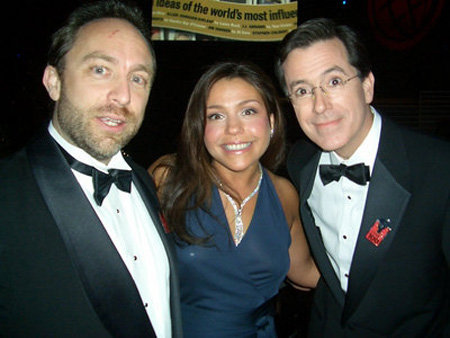


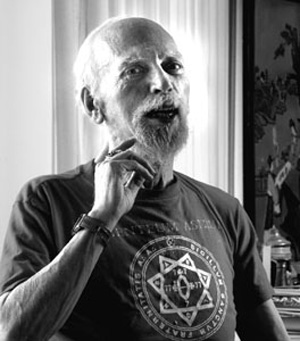







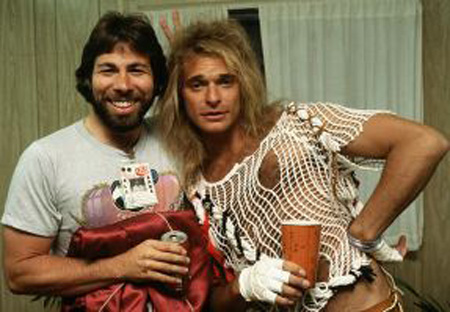


 While no one would accuse Republican psycho and democracy killer Katherine Harris of being an advocate of sexual libertinism, some did suggest that she was using her best assets in a series of photos taken early in her campaign to become the Republican Senator from Florida.
While no one would accuse Republican psycho and democracy killer Katherine Harris of being an advocate of sexual libertinism, some did suggest that she was using her best assets in a series of photos taken early in her campaign to become the Republican Senator from Florida.


 RU: Are you talking about Phil (Bronstein, Executive Editor of the SF Chronicle)?
RU: Are you talking about Phil (Bronstein, Executive Editor of the SF Chronicle)?

 Neil Gaiman didn't arrive naked when he graced our MondoGlobo studio on Sunday, October 1. But according to a
Neil Gaiman didn't arrive naked when he graced our MondoGlobo studio on Sunday, October 1. But according to a 

 Left to right: Joel Schalit, Fred Burks, RU Sirius at the first live recording of
Left to right: Joel Schalit, Fred Burks, RU Sirius at the first live recording of